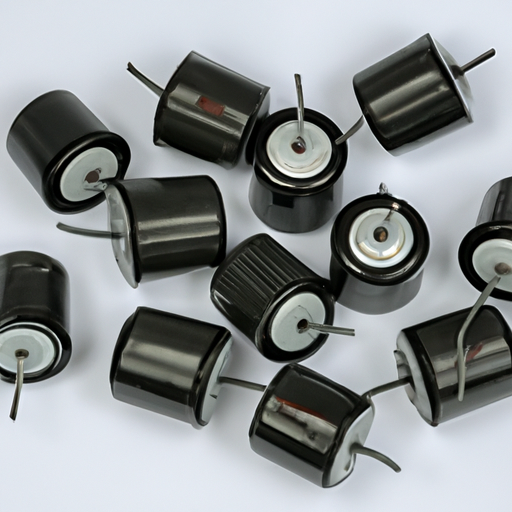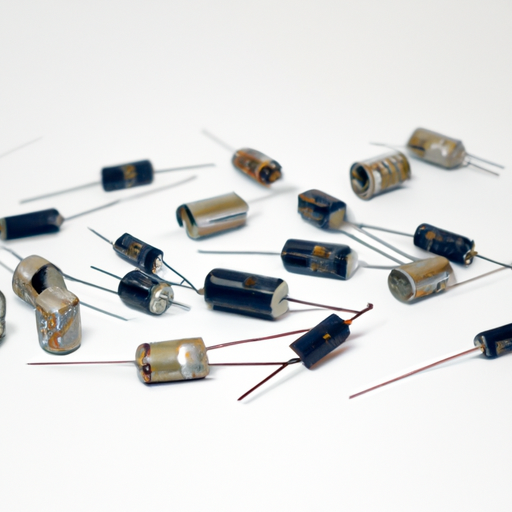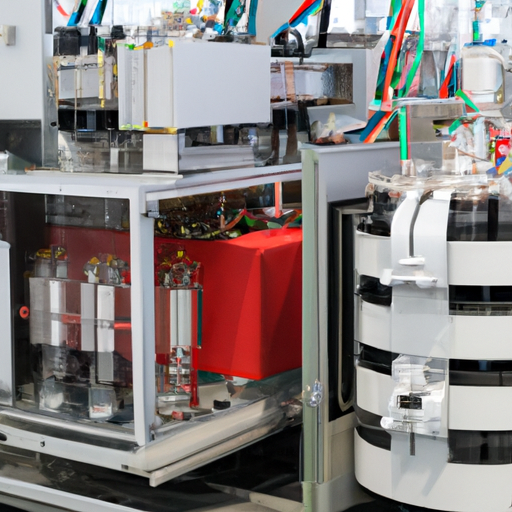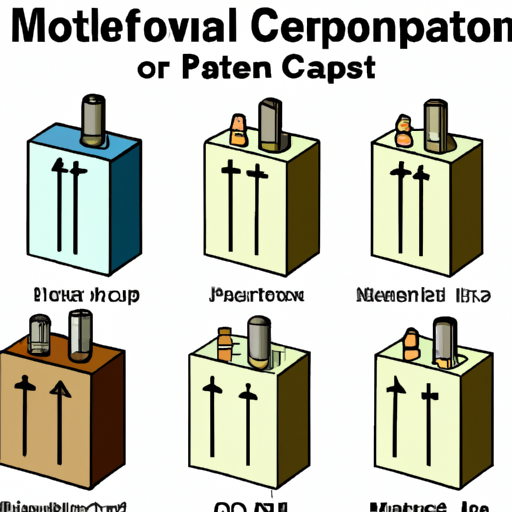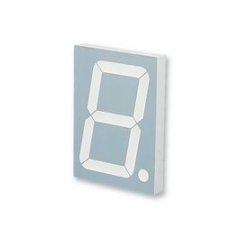What industries are the application scenarios of fan capacitors included in?
What Industries Are the Application Scenarios of Fan Capacitors Included In?
I. Introduction
In the realm of electrical systems, fan capacitors play a pivotal role in ensuring the efficient operation of various devices. These components are essential for the proper functioning of motors, particularly in applications that require starting and running capabilities. This article aims to explore the diverse industries that utilize fan capacitors, the specific application scenarios in which they are employed, and the benefits they bring to these sectors.
II. Understanding Fan Capacitors
A. Functionality of Fan Capacitors
Fan capacitors are electrical components that store and release energy to assist in the operation of electric motors. They are primarily used in two capacities: starting capacitors and running capacitors.
1. **Role in Motor Start and Run**: Starting capacitors provide the necessary boost of energy to initiate the motor's operation, while running capacitors maintain the motor's efficiency during operation. This dual functionality is crucial for the smooth performance of various devices.
2. **Types of Fan Capacitors**: There are several types of fan capacitors, including electrolytic capacitors, film capacitors, and ceramic capacitors. Each type has its unique characteristics and applications, making it essential to choose the right one for specific needs.
B. Key Characteristics
1. **Voltage Ratings**: Fan capacitors come with different voltage ratings, which determine the maximum voltage they can handle. Selecting a capacitor with the appropriate voltage rating is critical to prevent failure and ensure safety.
2. **Capacitance Values**: The capacitance value, measured in microfarads (µF), indicates the capacitor's ability to store electrical energy. Different applications require different capacitance values, making it essential to match the capacitor to the specific motor requirements.
3. **Temperature Ratings**: Fan capacitors are designed to operate within specific temperature ranges. Understanding these ratings is vital for ensuring the longevity and reliability of the capacitor in various environments.
III. Industries Utilizing Fan Capacitors
Fan capacitors find applications across a wide range of industries, each benefiting from their unique functionalities.
A. HVAC (Heating, Ventilation, and Air Conditioning)
In the HVAC industry, fan capacitors are integral to the operation of air conditioning units and ventilation systems. They help in starting and running the motors that drive fans, ensuring efficient airflow and temperature regulation. The reliability of fan capacitors in HVAC systems is crucial for maintaining comfortable indoor environments.
B. Home Appliances
Fan capacitors are commonly found in various home appliances, including:
1. **Ceiling Fans**: These capacitors enable ceiling fans to start smoothly and run efficiently, providing comfort in residential spaces.
2. **Exhaust Fans**: In kitchens and bathrooms, exhaust fans rely on capacitors to operate effectively, helping to remove moisture and odors.
3. **Kitchen Appliances**: Many kitchen appliances, such as blenders and food processors, utilize fan capacitors to power their motors, enhancing their performance.
C. Automotive Industry
The automotive industry also heavily relies on fan capacitors, particularly in:
1. **Electric Cooling Fans**: These fans are essential for regulating engine temperature, and fan capacitors ensure their efficient operation.
2. **HVAC Systems in Vehicles**: Capacitors play a vital role in the HVAC systems of vehicles, helping to maintain a comfortable climate for passengers.
D. Industrial Equipment
In industrial settings, fan capacitors are used in various types of equipment, including:
1. **Manufacturing Machinery**: Many machines in manufacturing processes utilize fan capacitors to power motors, ensuring smooth operation and productivity.
2. **Conveyor Systems**: Capacitors are essential for the efficient functioning of conveyor systems, which are critical for material handling in factories.
E. Renewable Energy
The renewable energy sector is increasingly utilizing fan capacitors in applications such as:
1. **Wind Turbines**: Capacitors help in the operation of cooling fans in wind turbines, ensuring optimal performance and longevity.
2. **Solar Inverters**: In solar energy systems, fan capacitors are used to manage the cooling of inverters, which convert solar energy into usable electricity.
F. Electronics and Consumer Goods
In the electronics sector, fan capacitors are found in:
1. **Computers and Laptops**: These devices use capacitors to power cooling fans, preventing overheating and ensuring optimal performance.
2. **Gaming Consoles**: High-performance gaming consoles rely on fan capacitors to maintain proper cooling during intense gaming sessions.
G. Marine and Aerospace
In marine and aerospace applications, fan capacitors are crucial for:
1. **Cooling Systems in Boats and Ships**: Capacitors help power cooling fans that regulate temperatures in marine engines and living spaces.
2. **Aircraft Systems**: In aviation, fan capacitors are used in various systems, including cabin air conditioning and engine cooling.
IV. Application Scenarios of Fan Capacitors
Fan capacitors are employed in several specific scenarios, each contributing to the efficiency and reliability of electrical systems.
A. Starting and Running Capacitors in Motors
As previously mentioned, fan capacitors serve as starting and running capacitors in motors. This dual role is essential for ensuring that motors can start smoothly and operate efficiently throughout their lifespan.
B. Power Factor Correction
In many industrial applications, fan capacitors are used for power factor correction. By improving the power factor, these capacitors help reduce energy losses and improve the overall efficiency of electrical systems.
C. Noise Reduction in Electrical Systems
Fan capacitors can also contribute to noise reduction in electrical systems. By stabilizing voltage and reducing fluctuations, they help minimize electrical noise, which can be particularly important in sensitive electronic applications.
D. Temperature Regulation in Various Applications
In applications where temperature regulation is critical, fan capacitors play a vital role. They help power cooling systems that maintain optimal temperatures in various devices, from industrial machinery to consumer electronics.
V. Benefits of Using Fan Capacitors
The use of fan capacitors offers several benefits across different industries:
A. Improved Efficiency
By ensuring that motors start and run smoothly, fan capacitors contribute to the overall efficiency of electrical systems, reducing energy consumption and operational costs.
B. Enhanced Performance
Fan capacitors help maintain optimal performance in various applications, from HVAC systems to industrial machinery, ensuring that devices operate at their best.
C. Longevity of Equipment
By reducing wear and tear on motors, fan capacitors can extend the lifespan of equipment, leading to lower maintenance and replacement costs.
D. Cost-Effectiveness
The efficiency and reliability provided by fan capacitors can lead to significant cost savings over time, making them a cost-effective solution for various industries.
VI. Challenges and Considerations
While fan capacitors offer numerous benefits, there are also challenges and considerations to keep in mind.
A. Selection Criteria for Fan Capacitors
1. **Matching Capacitance and Voltage Ratings**: It is crucial to select capacitors that match the specific capacitance and voltage requirements of the application to ensure safety and performance.
2. **Environmental Considerations**: Capacitors must be chosen based on the environmental conditions they will be exposed to, including temperature and humidity levels.
B. Maintenance and Replacement
Regular maintenance and timely replacement of fan capacitors are essential to prevent failures and ensure the continued efficiency of electrical systems.
C. Technological Advancements
As technology evolves, new types of fan capacitors are being developed, offering improved performance and efficiency. Staying informed about these advancements is crucial for industries that rely on these components.
VII. Future Trends in Fan Capacitor Applications
The future of fan capacitors looks promising, with several trends emerging:
A. Innovations in Capacitor Technology
Advancements in materials and manufacturing processes are leading to the development of more efficient and reliable fan capacitors, which will benefit various industries.
B. Growing Demand in Emerging Industries
As industries such as renewable energy and electric vehicles continue to grow, the demand for fan capacitors is expected to increase, creating new opportunities for manufacturers and suppliers.
C. Sustainability and Eco-Friendly Solutions
With a growing emphasis on sustainability, there is a trend towards developing eco-friendly fan capacitors that minimize environmental impact while maintaining performance.
VIII. Conclusion
Fan capacitors are integral components across a wide range of industries, from HVAC and home appliances to automotive and renewable energy. Their ability to enhance efficiency, performance, and longevity makes them invaluable in various applications. As technology continues to advance, the future of fan capacitors looks bright, with new innovations and growing demand in emerging sectors. Understanding the importance of fan capacitors and their application scenarios is essential for industries looking to optimize their electrical systems and improve overall performance.
IX. References
A comprehensive list of relevant literature, studies, and additional resources for further reading can be provided to support the information presented in this article.

